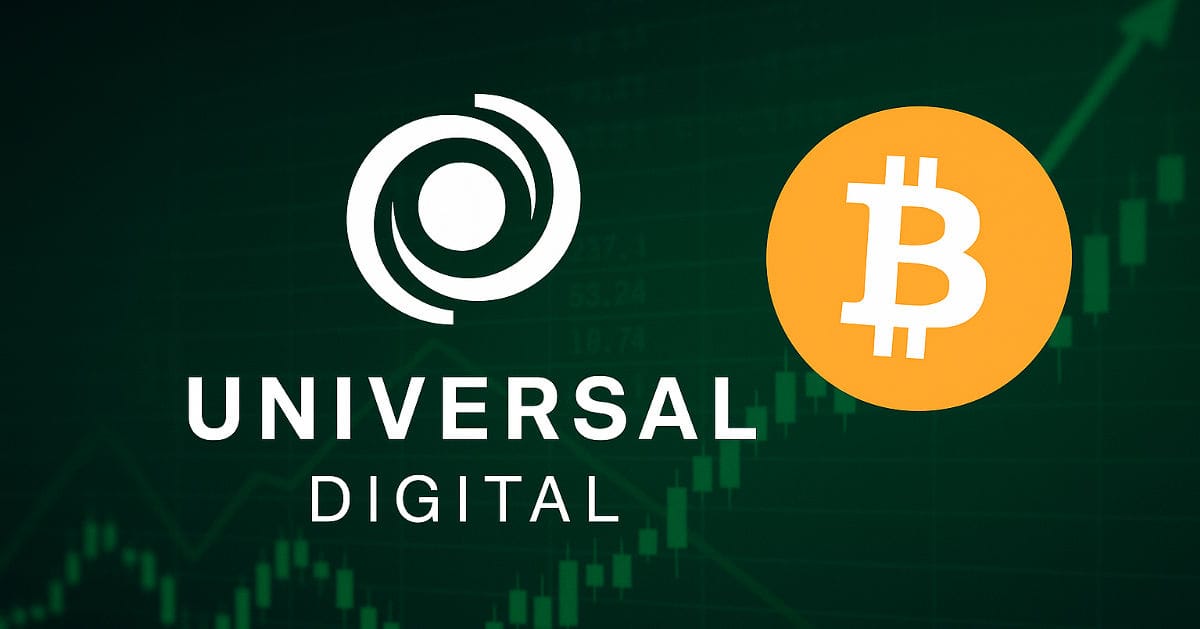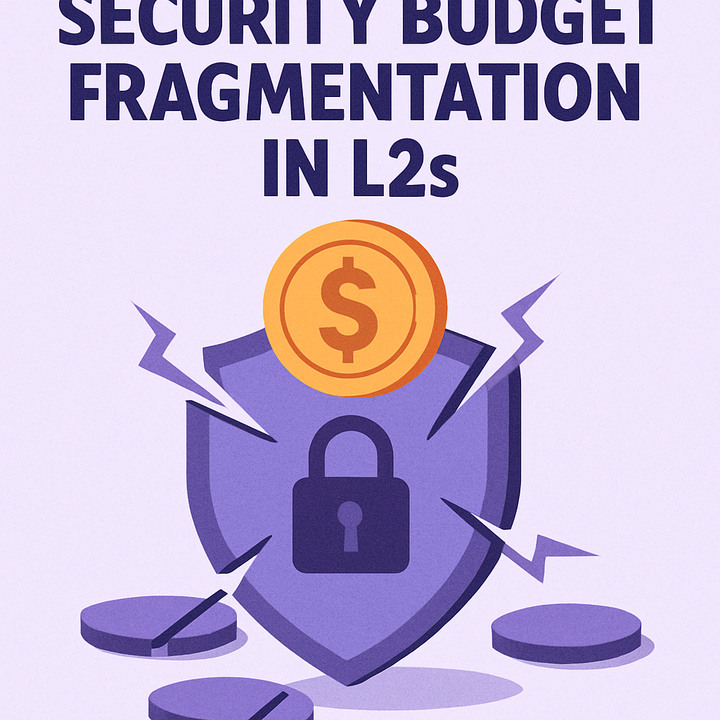Universal Digital Inc. Announces Bitcoin Treasury Strategy in North America and Asia

A Canadian firm, Universal Digital Inc., has made headlines by adopting a bold Bitcoin-focused treasury strategy and extending its vision across North America and Asia. In June 2025, Universal Digital revealed plans to hold Bitcoin as a key reserve asset on its balance sheet, treating BTC like a strategic treasury asset (similar to cash or gold). The company is not only reallocating its own holdings into Bitcoin, but also partnering with Japan’s GFA Co. to promote Bitcoin treasury models in Asian markets. This move raises interesting comparisons to MicroStrategy’s well-known Bitcoin strategy and has potential implications for regional market sentiment. Let’s break down what Universal Digital is doing, how it compares to MicroStrategy’s strategy, details of the GFA partnership, and what it could mean for the Bitcoin market in North America and Asia.
Bitcoin as Treasury Asset: Following MicroStrategy’s Playbook?
Bitcoin treasury strategy refers to a company holding a significant portion of its cash or reserves in Bitcoin, treating BTC as a strategic asset (much like a store of value). The pioneer of this approach was U.S.-based MicroStrategy, a software firm whose CEO Michael Saylor in 2020 began converting company dollars into Bitcoin. Over the years, MicroStrategy doubled down, even issuing debt and equity to buy more BTC. By early 2025, MicroStrategy had accumulated more than 553,000 BTC (worth over $50 billion at the time) on its balance sheet – an unprecedented corporate bet on a cryptocurrency.
Now, Universal Digital is adopting a similar philosophy on a smaller scale. The company announced that it will sell off its altcoin holdings and reallocate those funds to Bitcoin as part of a new reserve model. Essentially, Universal Digital is saying: “We trust Bitcoin’s long-term value more than other cryptos or perhaps even cash, so we’re going to keep Bitcoin in our treasury.” According to CEO Tim Chan, this strategy is meant to “enhance long-term net asset value” and align the company with global trends in institutional digital asset adoptionn. In other words, they see holding Bitcoin as strengthening their balance sheet over the long haul.
It’s worth comparing how Universal Digital’s approach parallels or diverges from MicroStrategy’s:
- Scope and Scale: MicroStrategy went all-in, converting the majority of its treasury into BTC and continually buying more (even during price dips). Universal Digital’s initial step is more modest – they are reallocating existing crypto holdings (previously in various altcoins) into Bitcoin. They haven’t announced taking on new debt or raising capital to buy BTC, which is something MicroStrategy famously did. This suggests Universal Digital is being somewhat cautious, using resources they already have rather than heavily leveraging the company to purchase Bitcoin.
- Motivation: Both companies cite a belief in Bitcoin’s strength as a long-term store of value. Saylor of MicroStrategy often argues that holding cash is a losing proposition due to inflation, whereas Bitcoin can appreciate over time. Universal Digital similarly talks about aligning with the “evolving global financial landscape” and sees Bitcoin as a complementary reserve asset for the company. The underlying thesis is the same: Bitcoin is viewed as digital gold – a hedge and a potential growth asset – that can bolster the company’s financial position.
- Profile: MicroStrategy is a larger U.S. public company and became almost a de facto Bitcoin exchange-traded fund (ETF) in the eyes of some investors – its stock started trading closely tied to BTC’s price. Universal Digital is a smaller firm (listed on the Canadian Securities Exchange under ticker LFG) that is already involved in the crypto sector. This means Universal Digital’s shareholders and management might be more inherently crypto-forward, whereas MicroStrategy’s move was groundbreaking for a conventional enterprise software firm. The market may not be as surprised by a crypto company holding crypto, but it’s still notable that they are concentrating specifically into Bitcoin.
- Geographical Focus: MicroStrategy’s strategy mainly impacted U.S. corporate discourse around Bitcoin. Universal Digital, however, is explicitly bridging to Asia through its partnership (more on that next). This geographic angle is new – leveraging a North American company’s know-how to encourage Bitcoin adoption in Asian corporate treasuries. It shows a recognition that the trend of holding BTC as a reserve isn’t limited to the U.S., and that Asia’s corporations might be an untapped audience for this concept.
In summary, Universal Digital is indeed following MicroStrategy’s footsteps in treating Bitcoin as a strategic asset, but with a tailored approach. They are reallocating existing assets (rather than making huge new purchases out of treasury or via debt) and they are focusing on expanding the model to other companies (not just their own balance sheet). The latter is where the partnership with GFA Co. comes in, which could set this initiative apart.
Partnership with Japan’s GFA Co. and Strategy Details
A standout aspect of Universal Digital’s announcement is the Memorandum of Understanding (MOU) with GFA Co., Ltd., a Tokyo Stock Exchange-listed financial and technology group. This partnership is strategic: GFA (short for Ground Financial Advisory, TSE: 8783) brings regional expertise and connections in Japan, while Universal Digital brings crypto treasury experience. The MOU, signed on June 12, 2025, outlines a framework for the two companies to jointly advance Bitcoin-based corporate finance models in Japan.
What does this actually entail? According to the announcement, Universal Digital and GFA plan to explore several initiatives under the partnership:
- Introducing Bitcoin Reserves to Other Companies: They aim to pitch and help implement Bitcoin treasury strategies for publicly listed companies in Japan. This means if there are Japanese firms interested in holding Bitcoin in their treasuries (similar to what Universal Digital is doing, or what MicroStrategy did), Universal and GFA would provide guidance or services to facilitate that.
- Innovative Financing Tools for Bitcoin Acquisition: The MOU mentions structuring capital raising methods like warrants and market-based offerings specifically to fund Bitcoin purchases. In practice, this could mean helping companies raise money (through issuing new shares or debt instruments) with the purpose of using those funds to buy BTC. It’s a creative blend of corporate finance and crypto investment – essentially giving firms a playbook to follow if they want to pivot some of their balance sheet into Bitcoin.
- Governance, Investor Relations, and Custody Frameworks: Holding Bitcoin on a balance sheet raises practical questions: How to custody the assets securely? How to report it to investors and regulators? How to ensure proper governance around decisions to buy or sell crypto? The partnership plans to work on best practices for digital asset governance, investor relations, and secure custody for companies. This is crucial for making traditional stakeholders comfortable – for example, setting up institutional-grade custody so that a firm doesn’t risk losing coins, or developing clear policies on when to buy/sell Bitcoin that management and shareholders agree on.
- Broader Collaboration in Digital Economy: The MOU also opens the door to joint investments in public companies, developing blockchain-based corporate structures, and even projects that connect Bitcoin adoption with cultural IP and Web3 consumer ecosystems in Japan. This suggests Universal Digital and GFA have a long-term vision beyond just treasury management – they foresee perhaps creating or investing in new businesses that build on Bitcoin and blockchain tech (for example, integrating Bitcoin into entertainment or retail in innovative ways).
It’s notable that Japan is the initial focus. Japan has been relatively progressive with crypto regulation (Bitcoin is legally recognized as an asset there and exchanges operate under clear rules). However, Japanese corporations have not (yet) been known for holding cryptocurrency in their treasuries. If anything, Western firms like MicroStrategy or Tesla made more headlines for this. So, Universal Digital and GFA might be pioneers in introducing the concept in Japan’s corporate world.
From GFA Co.’s perspective, partnering with a North American crypto company might give them a head start in offering novel financial services. GFA’s CEO, Gen Matsuda, was quoted as saying the combined expertise of Universal Digital in crypto/Bitcoin treasury and GFA’s knowledge of the Japanese markets makes a strong team, and he looks forward to “introduc[ing the] bitcoin reserve model to Japanese listed companies.”. That quote underscores the ambition: they’re not targeting just startups or crypto firms, but mainstream listed companies in Japan.
For beginners, an easy way to think of this is: Universal Digital wants to become a consultant or facilitator for Bitcoin adoption in corporate treasuries, and it’s starting with Japan through GFA. If successful, it could create a template that spreads to other regions or companies, where Universal Digital could play a role in advising or structuring deals.
Potential Impact on Regional Bitcoin Market Sentiment
Whenever a company announces it’s buying or holding Bitcoin as a treasury asset, it tends to be seen as a bullish sign in the cryptocurrency community. It signals confidence in Bitcoin’s long-term value from institutional players. Let’s consider the potential sentiment impact in both North America and Asia:
- North America (Canada/US): Universal Digital is one of the first Canadian public companies to embark on this path (MicroStrategy is American, and a few U.S. firms like Square (Block) and Tesla dipped into Bitcoin, but it’s still not common). Their move could encourage other mid-sized firms in Canada or the U.S. to consider Bitcoin for diversification. It adds to the narrative that Bitcoin is becoming an accepted asset for corporate treasury management, not just a speculative investment. Additionally, Universal Digital’s stock is accessible to investors (on the CSE in Canada); if their Bitcoin strategy yields positive results (say, if BTC price rises and boosts their asset value), it might catch the eye of other executives or boards. It’s also a reminder that the crypto industry itself (of which Universal is a part) believes strongly in Bitcoin’s future – enough to shift corporate strategy around it.
- Asia (Japan and beyond): The partnership with GFA is directly aimed at Japanese companies, so the near-term impact on sentiment will be watched in Japan’s business circles. If even a few Japanese companies publicly adopt Bitcoin reserves following this initiative, it would be groundbreaking. Japan’s market is huge – the press release notes Asia’s public markets are around $25 trillion in size. Even a small percentage of that reallocating into Bitcoin would represent significant demand. Moreover, such news could normalize the idea of Bitcoin in boardrooms; instead of being seen as too volatile or fringe, it might be viewed as an innovative treasury strategy for forward-thinking companies. The involvement of a Tokyo-listed firm (GFA) lends credibility and could make conservative Japanese corporate stakeholders more open to the idea.More broadly in Asia, where corporate culture and regulations vary by country, a success story in Japan could have a ripple effect. South Korea, Hong Kong, or Singaporean companies might take note if a major Japanese firm takes the plunge. Additionally, Universal Digital cited Chainalysis data that Eastern Asia accounted for 8.9% of global on-chain crypto volume (July 2023–June 2024), driven largely by institutional players. If Universal Digital and GFA tap into that trend, they might unlock new sources of Bitcoin buying from institutional portfolios in Asia. That possibility would be viewed positively by global crypto traders, as it suggests wider geographic diversification of Bitcoin holders (reducing reliance on North American institutions alone).
- Comparisons to MicroStrategy: MicroStrategy’s aggressive Bitcoin buys in 2020–2021 were seen as a turning point that helped catalyze a bull market. Each purchase announcement tended to boost market sentiment. Universal Digital’s purchases will be much smaller (at least initially), but they contribute to the same narrative: more companies putting BTC on the balance sheet equals more long-term holding and less circulating supply. Over time, if many companies follow, it can create a supply squeeze effect where fewer Bitcoins are available in the open market, potentially supporting the price. Even symbolically, Universal Digital’s shift tells investors that Bitcoin isn’t just an American phenomenon – it’s gaining appeal globally as an asset you might find in corporate treasuries.
- Regional Market Sentiment: In North America, the move might slightly bolster the already positive sentiment around Bitcoin as an institutional asset (coming on the heels of events like ETFs, etc.). In Asia, it could be more significant: it shows a concrete example of East-West partnership in crypto finance. It might also interplay with regional attitudes – for instance, if Japanese fintech firms start holding BTC, might Korean or Taiwanese competitors consider it to keep up? It could kickstart a regional conversation about optimal treasury management in a world of high inflation (for some countries) and currency uncertainties.
In sum, Universal Digital’s Bitcoin treasury strategy, especially with its cross-Pacific partnership, is a notable development. It reinforces the idea that Bitcoin is not just a speculative bet but can be part of a long-term financial strategy for companies. If successful, it could encourage more firms in both North America and Asia to dip their toes into BTC holdings, which in turn feeds a virtuous cycle of adoption and confidence in the Bitcoin market


Comments ()